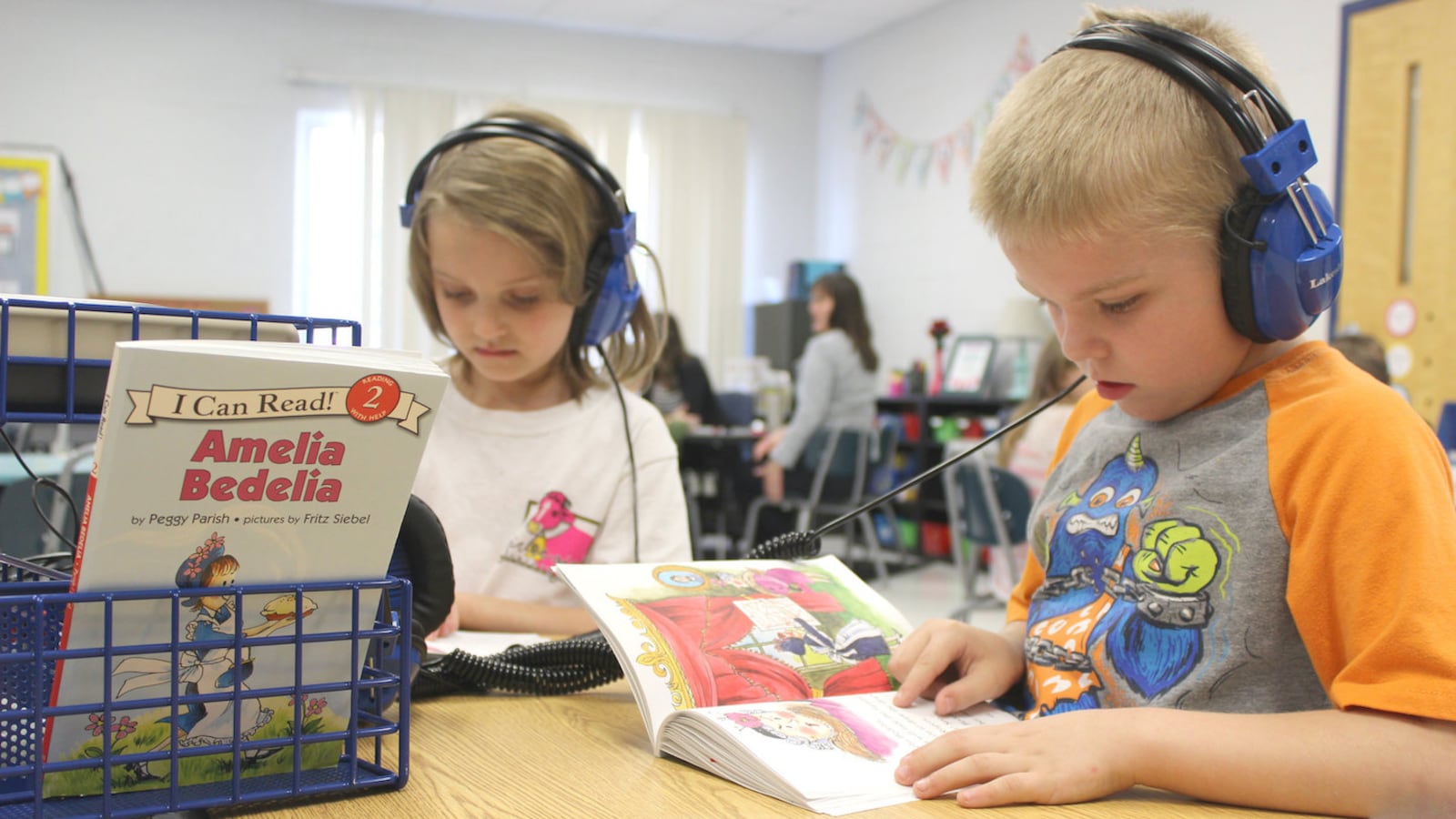Tennessee’s statewide network of literacy coaches is being dismantled this month after funding for that program was not renewed in the budget proposed by Gov. Bill Lee and approved by the legislature.
And the future of popular summer reading camps started four years ago under Gov. Bill Haslam’s administration is uncertain after a federal grant was pulled, even as participating children have showed gains in their reading comprehension and increased their motivation to read.
Both are key components of Read to be Ready, a major initiative that launched amid fanfare in 2016 as Tennessee tried to address national test results showing that only a third of its fourth-graders were considered proficient readers. The idea was to hone in on reading development in early elementary grades with the goal of getting 75 percent of the state’s third-graders proficient by 2025.
The goal remains lofty and Tennessee still has a long way to climb, but the state was encouraged last year when a one-year jump of 2.3 percent helped to get almost 37 percent of its third-graders reading on or above grade level.
Now educators and other stakeholders are incensed that an initiative that appeared to be making a difference was not prioritized this spring by the new Republican governor or legislature.
“This is in direct conflict to the state’s own reading goals,” said Superintendent Joey Hassell of Haywood County Schools, a rural district near Memphis. “Outside of safety, literacy is the most important work we do every day in our schools, and removing this additional state support frankly just knocks our feet out from under us.”
“I’d love to know how this happened,” tweeted Gini Pupo-Walker, a Nashville school board member and senior director of education and programs for Conexión Américas, which serves Latino families in Nashville. “Read to be Ready was a smart investment. What’s the alternative literacy intervention strategy now for [the education department] and districts in TN?”
The sweeping initiative got little attention this spring as the governor and GOP legislative leaders focused on passing an education voucher bill that will start a major new state program in 2021. That controversial new law — which will allow some families to pull their children from public schools in Memphis and Nashville and receive taxpayer money to pay toward private schools or other private services — has elevated the frustrations of public school stakeholders who opposed vouchers but have celebrated Read to be Ready.
“We saw debate after debate where voucher programs were forced on Memphis and Nashville and no one could articulate the cost,” said Hassell. “And now we’ve got a reading program that’s showing results and impacts public school systems across Tennessee and it’s being cut without any conversation.”
Dale Lynch, head of the state superintendents group, said the program has been “instrumental in improving the early literacy skills of our kids.”
“It’s a problem if we don’t find a funding source for opportunities like Read to be Ready,” he said.

State Education Commissioner Penny Schwinn said her department is looking closely at programs under the initiative, which also provided training for educators and reading resources for students. She said the governor invested $5 million at the 11th hour to fund this summer’s reading camps when federal grant money intended for that purpose was “disallowed” from being used to pay for them through the state Department of Human Services.
“This is tough,” Schwinn acknowledged on Monday. “We’ve got to get literacy right and we’re going to work at the department to find a way. We may just have to think about it a little differently and look for more creative ways to use our own federal dollars” through the education department.
She said the coaching network had funding for three years and was scheduled to end this June. This year, the legislature allocated $1.8 million for coaches at priority schools performing in the state’s bottom 5 percent, which she called “a start.”
“We’re going to use the $1.8 million for priority schools and find flexible federal dollars to recreate the best components of Read to be Ready and to make sure our districts aren’t missing out on these valuable resources,” said Schwinn, who was hired by Lee in January.
Few programs initiated by the state education department have been embraced with more enthusiasm than the one championed by Haslam and Candice McQueen, Schwinn’s predecessor.
McQueen ended her tenure the same way she started — focused on reading
By its second year, two-thirds of Tennessee’s 146 school districts had signed on to plug into the network of several hundred literacy coaches helping classroom teachers improve their reading instruction.
And what began with 12 summer reading camps in the program’s inaugural year — through a $1 million gift from the Dollar General Literacy Foundation — had grown tenfold by the second year, thanks in large part to a federal DHS grant. Last summer, more than 7,700 children who are mostly economically disadvantaged took part in 250 reading camps across the state, and more than 193,000 high-quality books were given to the students to take home. Even more camps are underway this summer via an $8.9 million grant program.

According to a report released last fall, first-, second-, and third-graders who participated in the camps showed gains in reading comprehension and accuracy skills for a third straight year. And the last two summers generated statistically significant improvements in those skills, based on assessments given in the early and last days of the camps.
Hassell said Read to be Ready had been a godsend for Haywood County Schools, both through the coaching network and summer camps that combat summer slide, a troubling phenomenon in which low-income students fall academically behind their more affluent peers.
He wrote Schwinn over the weekend to express his frustration at the funding priorities of the governor and legislature to double the state’s investment in a special charter school fund to $12 million and to start distributing education savings accounts, a new type of voucher that’s expected to cost taxpayers at least $165 million by 2024.
“I’m really struggling to see how equity is in the equation when 114 districts suffer” as Read to be Ready collapses, Hassell wrote.
A spokeswoman for the governor said the administration was looking into the matter but did not have an immediate comment.


